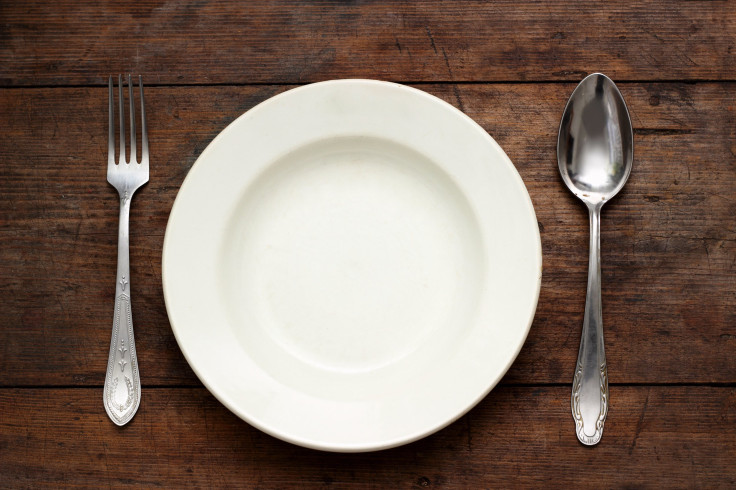What Happens To Your Body If You Fast For One Day? First Weight Loss, Then Slow Metabolism


This question originally appeared on Quora. Answer by Bart Loews.
To answer the question directly, starving yourself will lead to fat loss at first, then muscle and water loss, then fat loss again, then death.
To explain why, let's do a breakdown of what happens when you stop eating — starting from your last meal.
You've just taken your last bite of food. Your saliva enzymes start breaking it down. It goes down your esophagus. Your stomach acid and enzymes break it down further into chyme which is a partially digested mass of food-like product that is small enough to enter into the intestine. Your gall bladder, pancreas, and small intestine produce more enzymes to further break the food down into it's separate components, different enzymes and compounds are secreted to break down food based on its content.
Additionally, foods are broken down by your gut microbiome, or bacteria. The bacteria in your gut will eat the food you provide it and excrete it in a different form, which may be absorbed by your body.
When it's small enough, the various nutrients are either absorbed into your intestinal lining and sent to the liver, sent into the bloodstream, metabolized by your gut flora, or sent down through your large intestine where the water is removed and you're left with feces.
In any case, your blood sugar and nutrient contents go up after you eat. Food can't just enter your cells, however. They need transport mechanisms that know how to pass things through your cell lining. Lipoproteins (LDLs) shuttle fatty acids to cells, and insulin lets glucose and amino acids into the cells. Insulin levels will rise as your blood sugar rises. About half of what you eat will be used as food, the rest will get stored in fat.
This process will take hours from when the food is eaten to it being digested and stored.
Let's pause for a second and back up for a second and look at the hunger process.
When your stomach is empty it starts to release a hormone called Ghrelin. Ghrelin does a bunch of stuff, mainly revolving around preparing your body to find food and eat. Ghrelin can cause other hormones to be released that stimulate lipolysis, or fat release from adipose cells. More and more ghrelin is produced over time. The more ghrelin in your system, the hungrier you are.
After you start eating, ghrelin production stops and ghrelin levels in your system are reduced.
When your fat stores start taking on nutrients they release a hormone called Leptin. Leptin tells your brain that you're full and you don't need to eat anymore.
Back to what happens when you stop eating...
You've finished your last meal, the blood nutrient levels are being distributed randomly, based on where the blood flows and where the insulin lands. Leptin is released and you're no longer hungry.
The cycle begins again.
Ghrelin starts building up and you feel hungry. Your body is urged to find food as the ghrelin encourages epinephrine to be released. Your resting metabolism rises for a period of time as your body tells you: "You need to eat!"
A healthy, well fed body, at rest and fasting will use fat to get 60-70 percent of its energy. The reason for this is that your body is meticulous about maintaining its blood sugar levels and will take measures to ensure you have a steady level of blood sugar for your body to survive on.
After 16 hours of being fasted, your body will start creating glucose from amino acids. If your body doesn't have enough amino acids in your system, it will break down your muscle proteins, reduce them to amino acids for energy production. This process is ratcheted up significantly after 28 hours.
If your meal didn't have significant amounts of protein in it, your body will begin breaking down muscle during this time, between 16 and 72 hours fasted. Realistically, there's no way you could eat enough protein to last for 72 hours on just blood amino acid levels; the "slowest" proteins will only continue to be released for around 7 hours.
When your blood sugars decrease, your pancreas secretes hormones to tell your fat and muscles to release fatty acids and amino acids to be converted into sugar. It happens based on chance: whichever cell the hormones run into first, whether protein or fat.
In other words, from 16 hours to 72 hours your body will lean heavily on amino acids and protein catabolism for energy creation. This will lead to most of the weight lost at this time to come from muscle and water weight since the gluconeogenesis which is used to convert amino acids to sugar isn't terribly efficient. At a certain point, after about 72 hours days, this loss will slow, your body needs some muscles to move and function, so it will keep some around.
More from Quora:



























